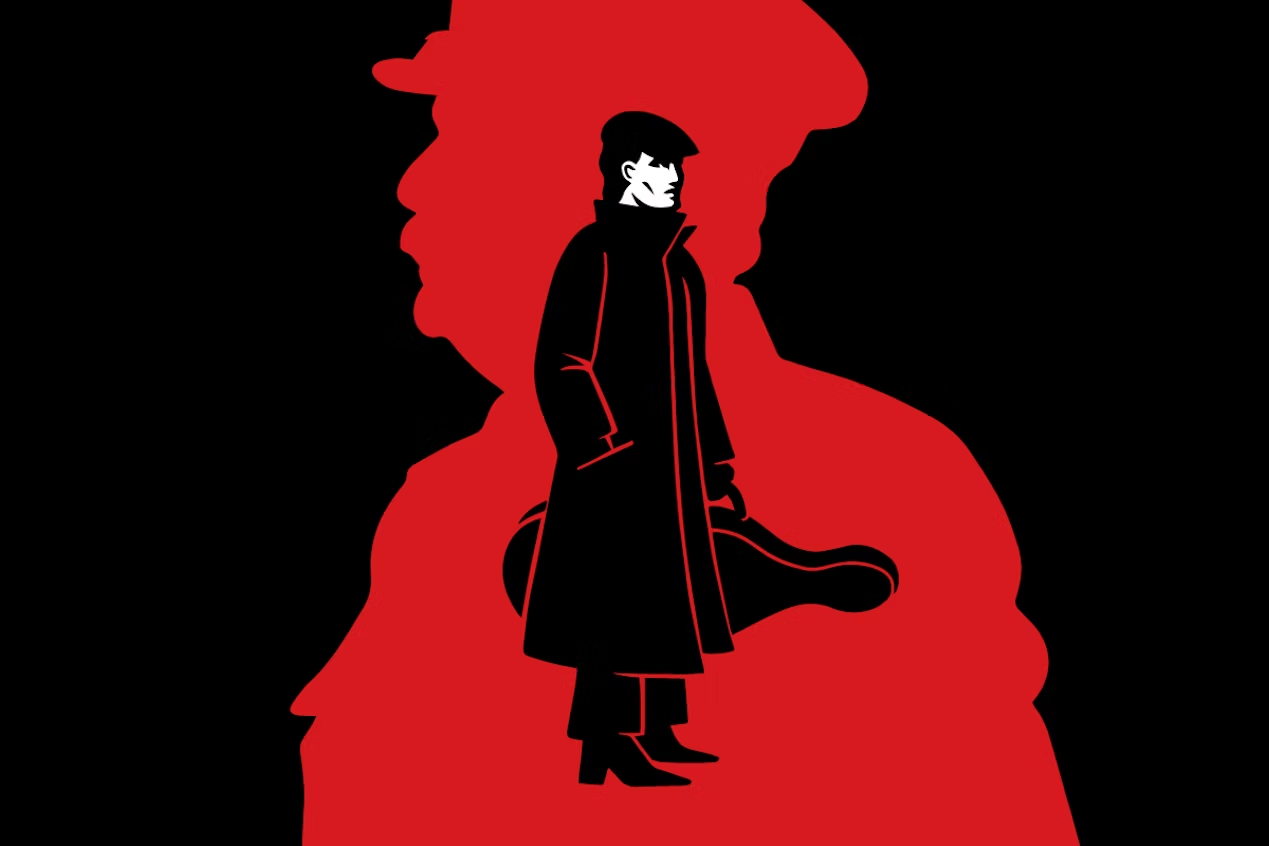
About our 2025 season
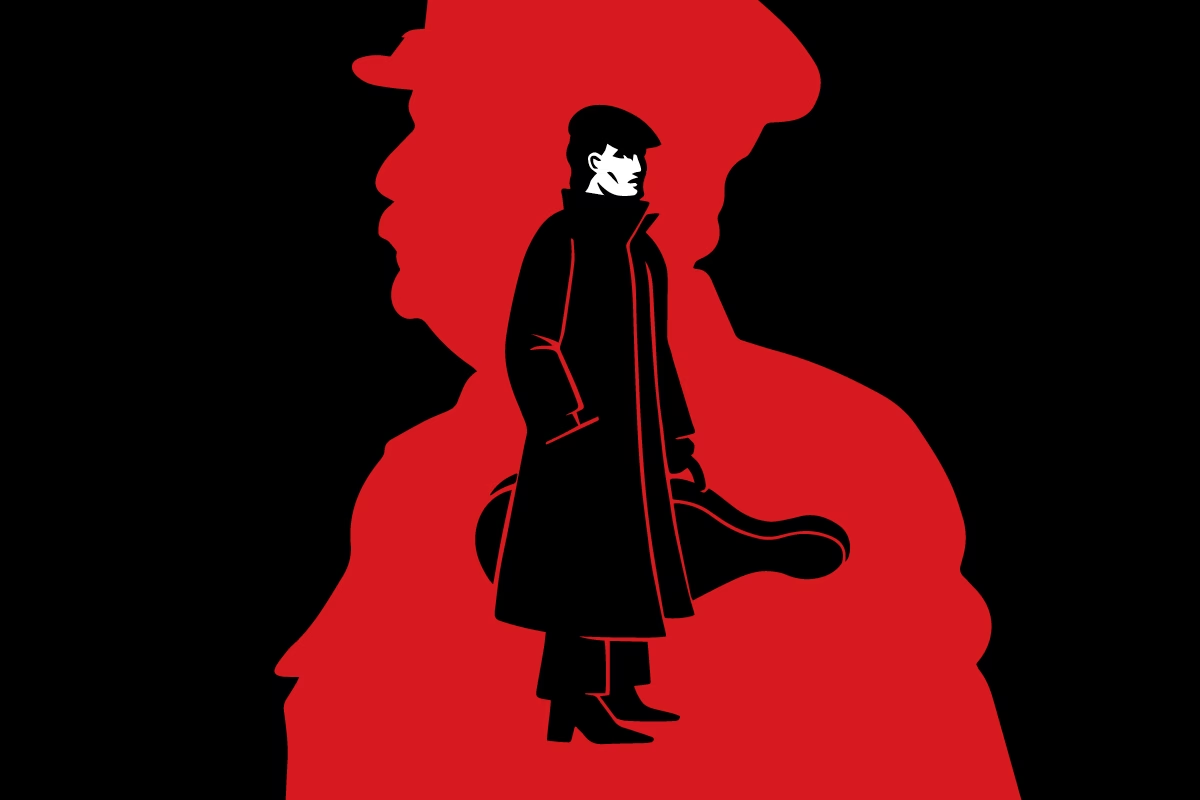
Tickets on sale from 1 March 2025 via Ticketmaster. Sign up to our newsletter to be reminded!
From Marc Taddei – Music Director
“…this is a game that may end very badly.”
With these chilling words, Pravda set the stage for one of the most dramatic chapters in music history. Orchestra Wellington invites you to join us as we explore this gripping story in our upcoming season, The Dictator’s Shadow.
2025 marks the 50th anniversary of Dmitri Shostakovich’s death. We will commemorate this by tracing the meteoric rise of a teenage wunderkind, celebrated by his country, who eventually faced censure and potential imprisonment, or worse. This perilous history feels all too relevant today. Shostakovich must be considered the most consequential composer of the twentieth century, especially when viewed through the lens of how his music continues to be received and interpreted.
How does the artist exist in society? How do they respond to repression, reveal (or disguise) their thoughts, and connect? These questions shape our season.
Spanning a tumultuous 15-year period, Orchestra Wellington’s 2025 season involves 20th-century symphonies and an opera that journey through experimentation, official rebuke, and artistic response. These masterpieces symbolise the artist’s struggle and resilience under repression and political control. Shostakovich’s unique position as the only Soviet artist claimed ardently by both the establishment and counterculture resulted from his gifts, the times in which he lived, and his inscrutability. His music allowed for interpretations, including political messages from both sides of the Cold War. The contradictions inherent in Shostakovich are what make him so consequential.
Shostakovich was a prodigy. His first symphony (1925) brought him almost immediate worldwide acclaim. It is a precocious work, aware of contemporary modernist style — classical in form but with a sarcastic tone uniquely his. This early work was celebrated as brash genius, giving voice and joy to the social upheavals following the revolution.
Partnering this superb symphony is another great symphony written by a teenager: Bizet’s Symphony in C. Written in 1855 while a student at the Paris Conservatoire, it remained unknown until its 1935 premiere. It’s a paragon of Romantic gesture. Our brilliant concertmaster Amalia Hall will perform the work of another prodigy — Mendelssohn’s exquisite violin concerto, one of the greatest concertos of the 19th century.
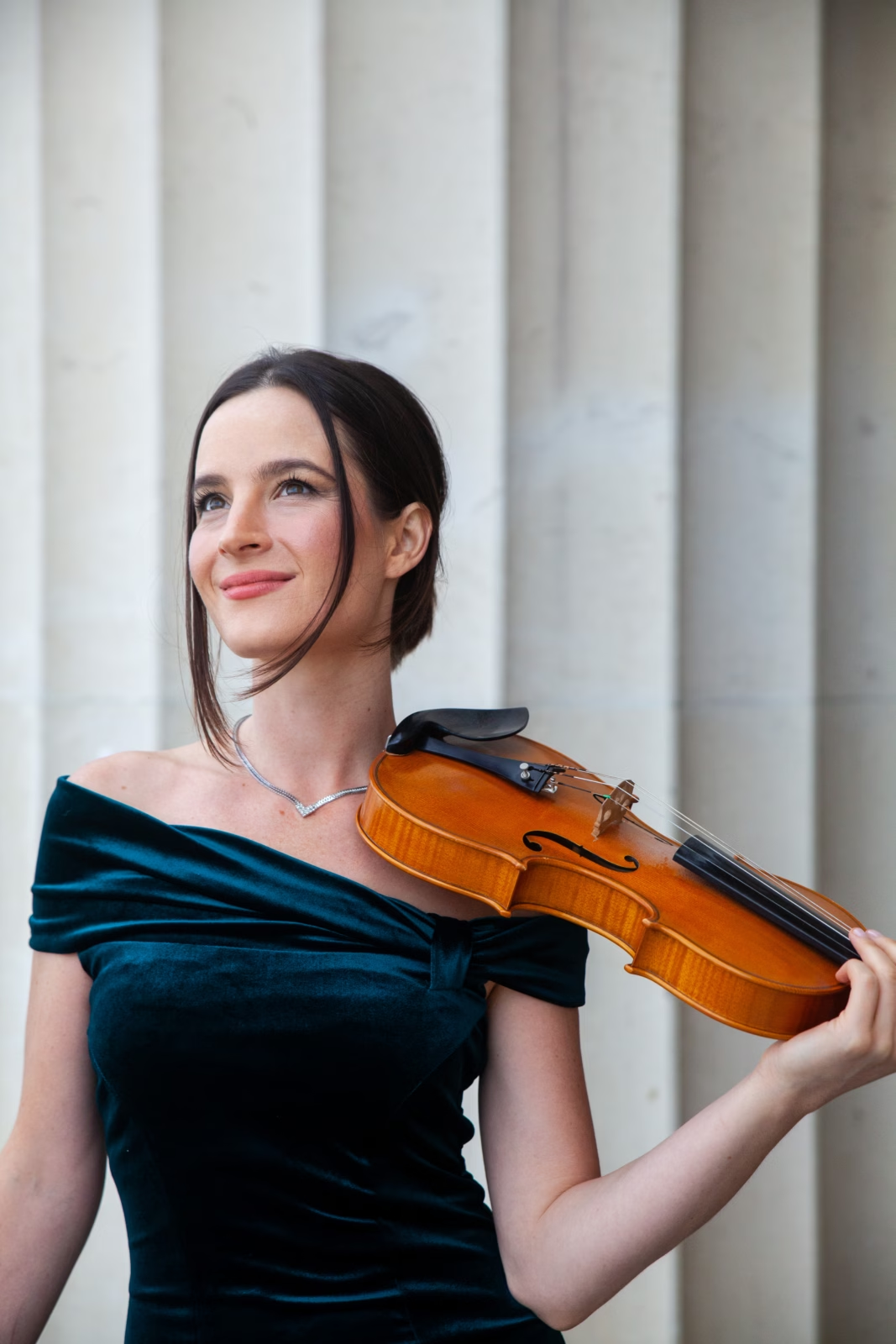
Amalia Hall, Orchestra Wellington Concertmaster
Shostakovich’s second symphony (1927) represents a young composer experimenting with modernism while responding to Soviet demands — a struggle that would shape much of his later work. The twenty-minute single movement follows the dramatic form of Beethoven’s ninth symphony, beginning with indistinct rumblings and ending with a choral ode to “October! Herald of the Desired Dawn!” The factory whistle that heralds the chorus’s entrance is a fabulous touch!
Pianist Jian Liu joins us as the soloist for this programme, performing Tchaikovsky’s Piano Concerto No 3. A late work derived from material for a seventh symphony, it was left incomplete at Tchaikovsky’s death, existing only in one movement. It’s a fascinating example of Tchaikovsky’s late style, showcasing brilliant ideas and hinting at what was lost with his death.

Dr Jian Liu, pianist
Closing the program is Rimsky-Korsakov’s Scheherazade, composed in 1888. This orchestral suite combines brilliant orchestration with evocative storytelling, capturing the exoticism and allure of The Arabian Nights. It’s a work that demands some of the most challenging violin solos, which Amalia Hall will perform as the storyteller, Scheherazade.
Shostakovich’s third symphony (1929) also reflects his early attempts to navigate Soviet cultural demands. Like the second symphony, it represents a continuation of his experimental phase, mixing militaristic fanfares with introspective passages. Our dear friend Lev Sitkov will partner this symphony with Britten’s Cello Symphony of 1963, a work commissioned by their mutual friend Mstislav Rostropovich. The Cello Symphony stands as a testament to the rich artistic dialogue between Britten and Shostakovich, linked through their admiration for Rostropovich.
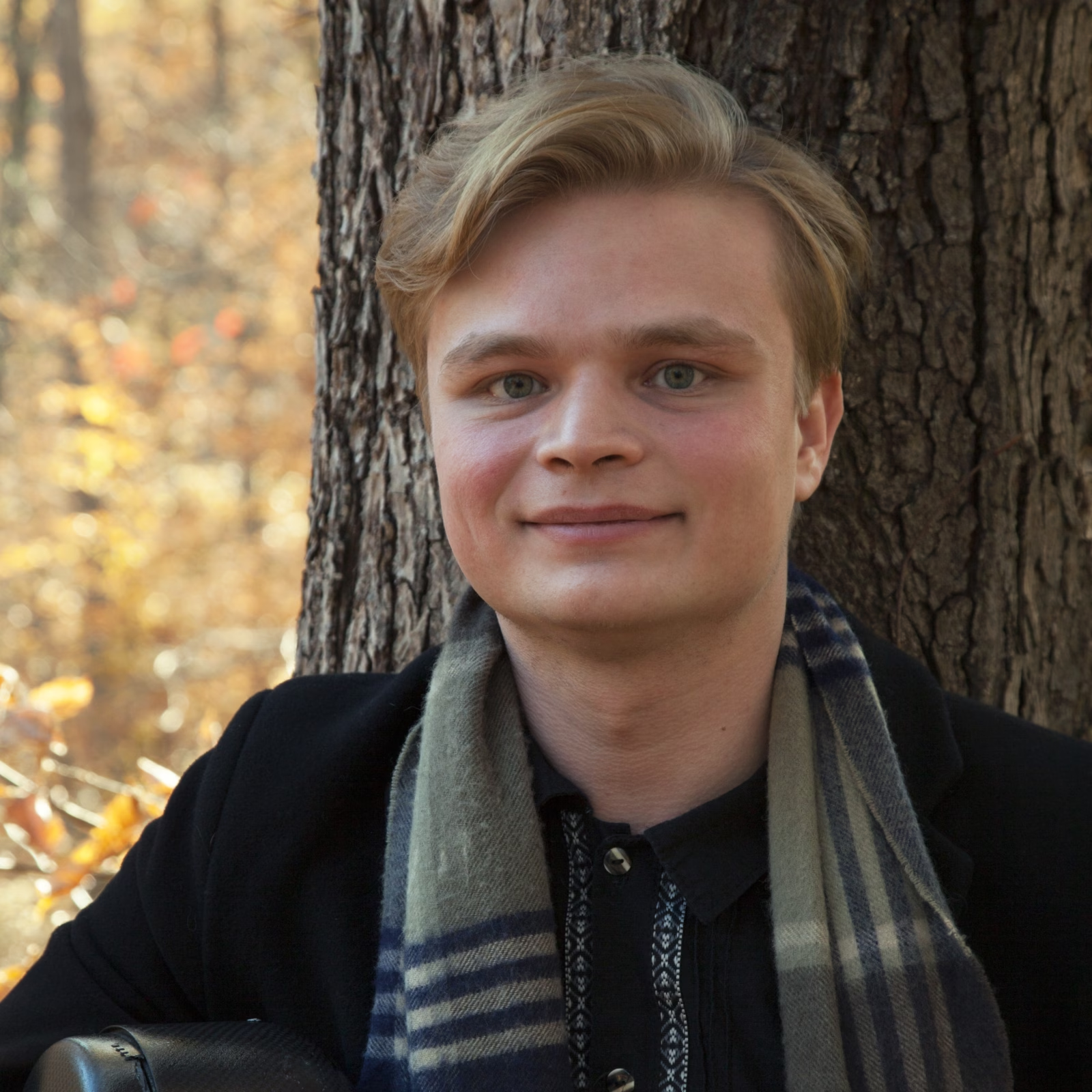
Lev Sitkov, cellist
Shostakovich’s fourth symphony is one of his most significant and enormous works — six flutes! Seven percussionists! Eight horns! Composed between 1935 and 1936, it was withdrawn before its scheduled premiere due to the denunciation of his opera Lady Macbeth of the Mtsensk District in the infamous Pravda article “Muddle Instead of Music.” The fourth symphony reflects Shostakovich’s deep engagement with Mahler’s symphonic tradition and marks the last hurrah of Soviet modernism before the dictates of Social Realism and the horrors of Stalin’s Great Terror. It wasn’t performed publicly until 1961, revealing a secret masterpiece hidden from the world for decades.
Lady Macbeth premiered in 1934 and was an immediate success, running for nearly two years with over 100 performances worldwide. However, the Pravda article condemned it as “formalist” and “vulgar.” Widely believed to be inspired by Stalin himself, the critique led to the opera’s swift removal from the Soviet repertoire. It wasn’t performed again in the Soviet Union until a revised version appeared in 1963.
We will present a suite from Lady Macbeth, featuring its orchestral interludes and Katarina’s arias, sung by the great NZ soprano Madeleine Pierard who memorably sang in OW’s 2023 NZ premiere of Wozzeck. She is clearly the “go-to” singer for tortured female icons of the modernist era!
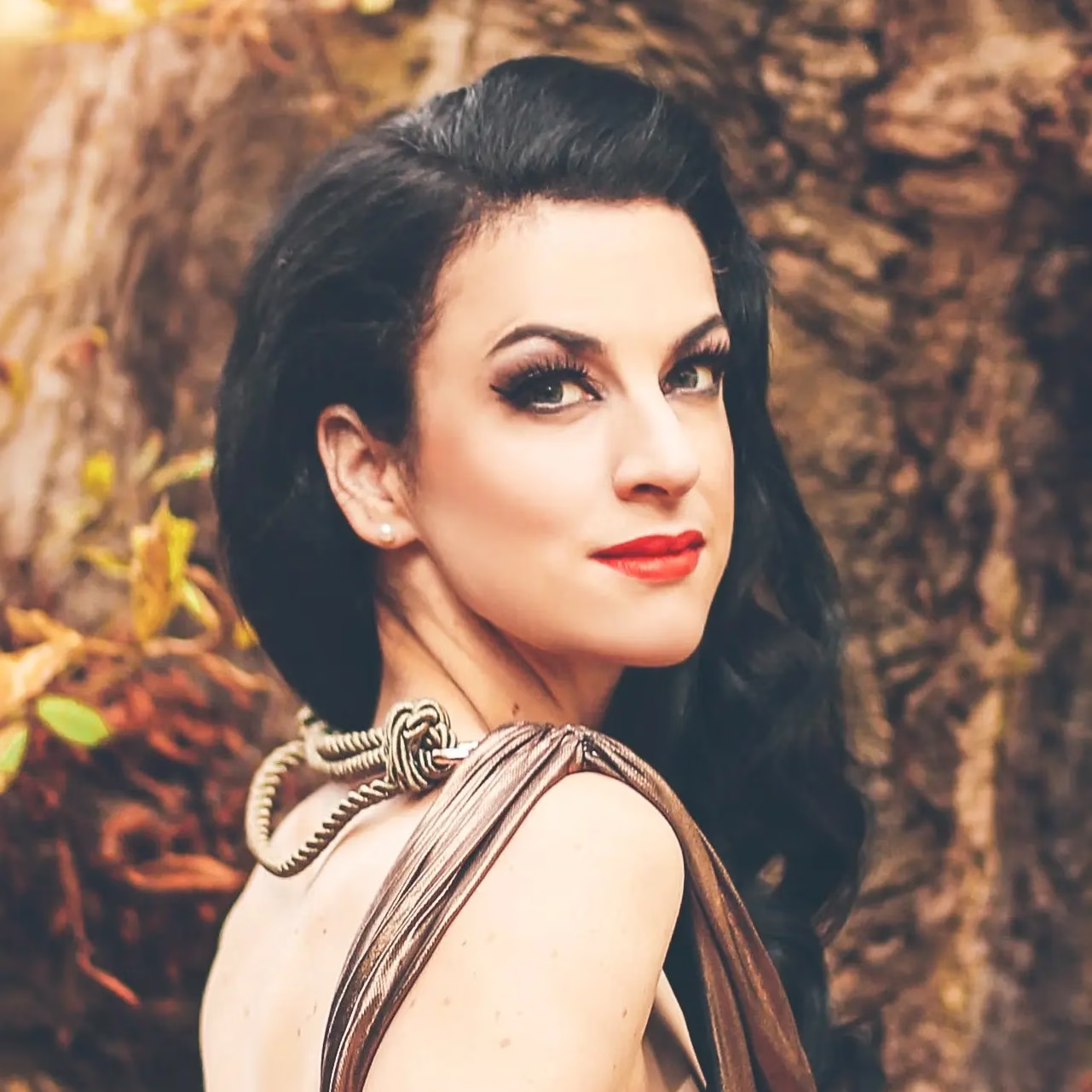
Madeline Pierard, soprano
The Pravda denunciation had a devastating effect on Shostakovich, forcing him to navigate Soviet cultural politics more carefully. He immediately withdrew his fourth symphony and adopted a more cautious, conservative approach, radically changing his style, aligning with the principles of Social Realism, which demanded accessible, optimistic, and ideologically sound art.
Shostakovich’s Symphony No. 5 in D minor, Op. 47, is perhaps his most famous and frequently performed symphony. Composed and premiered in 1937, it marked a significant turning point in his career. Often associated with the subtitle “A Soviet Artist’s response to just criticism,” the fifth symphony has sparked one of the most enduring debates in musicology: What is the real meaning behind this work? Its outward conformity to Soviet expectations, coupled with its deeply felt passions, has led to divergent interpretations. Whether viewed as a sincere expression of Soviet ideals or a subversive critique of totalitarianism, the ambiguous fifth symphony continues to captivate audiences with its emotional depth, structural brilliance, and complex interplay between public and private expression.
We are honoured to present the Wellington premiere of Victoria Kelly’s Requiem, winner of the SOUNZ Contemporary Award in 2023! Victoria is our 2025 Composer-in-Residence, and the Requiem is a masterpiece — there is no more appropriate word for her accomplishment.
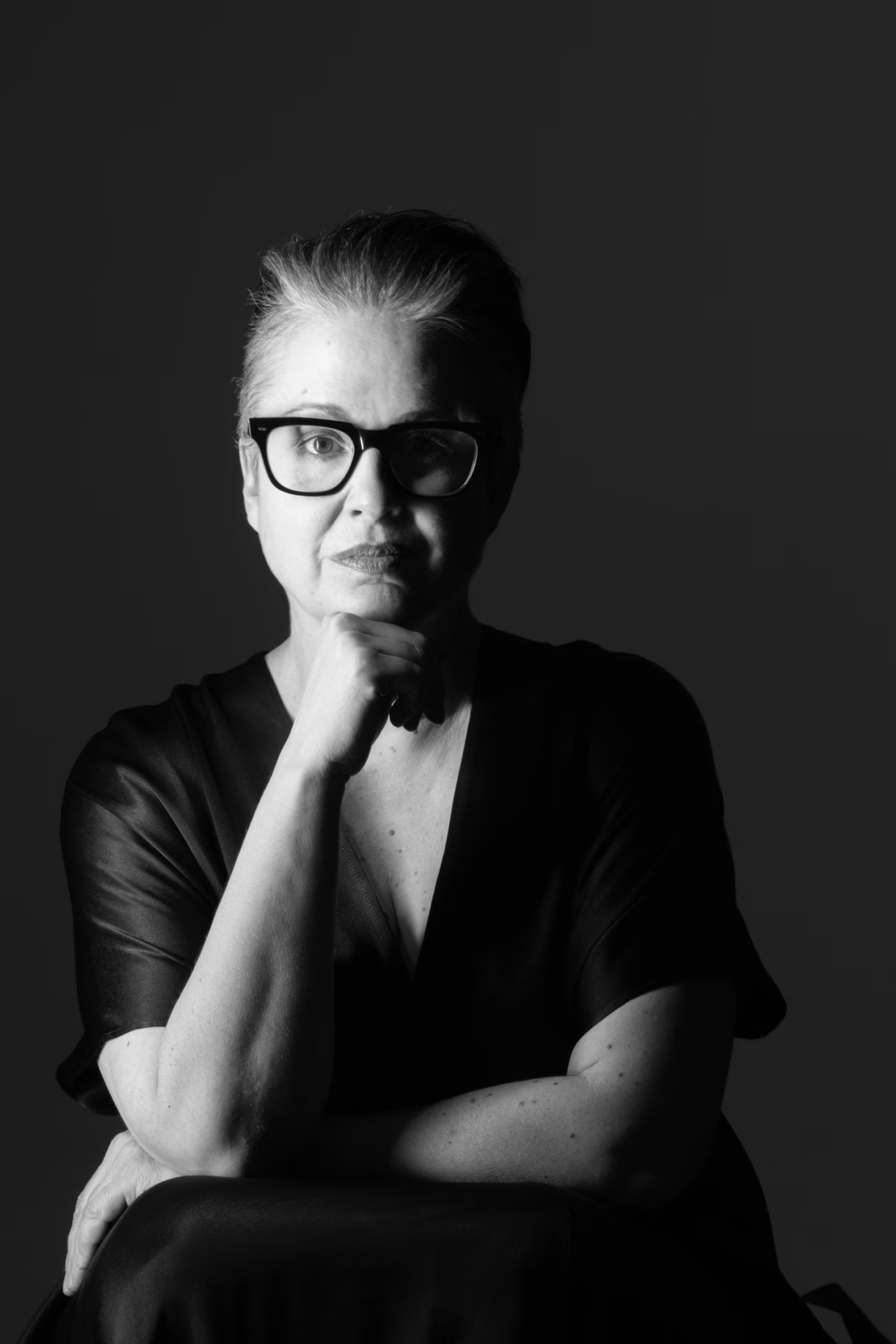
Victoria Kelly, Orchestra Wellington 2025 Composer-in-Residence
We are also excited to showcase another aspect of Victoria Kelly’s prodigious talent in a special Halloween event celebrating the fusion of music and film. The Orchestra will play her score to the iconic New Zealand horror-comedy Black Sheep. This live performance at the Embassy Theatre is accompanied by a pre-screening talk with the director, Jonathan King.
Black Sheep is a cult classic known for its dark humour and sharp satire, making it the perfect film for a Halloween celebration. The evening promises thrills, laughs, and even themed cocktails — perhaps a “Sheep Dip” to fit the occasion? It’s sure to be an unforgettable experience for fans of cinema, great music, and those with a taste for the macabre. Prizes will be awarded for the best costumes, so come dressed to impress!
This event not only showcases Kelly’s versatility as a composer but also highlights Orchestra Wellington’s commitment to bringing novel and riveting performances to you, because a great audience deserves great programming! Joining Orchestra Wellington for the Wellington premiere of this masterpiece will be The Tudor Consort, along with soloists Barbara Paterson and Alexander Lewis.
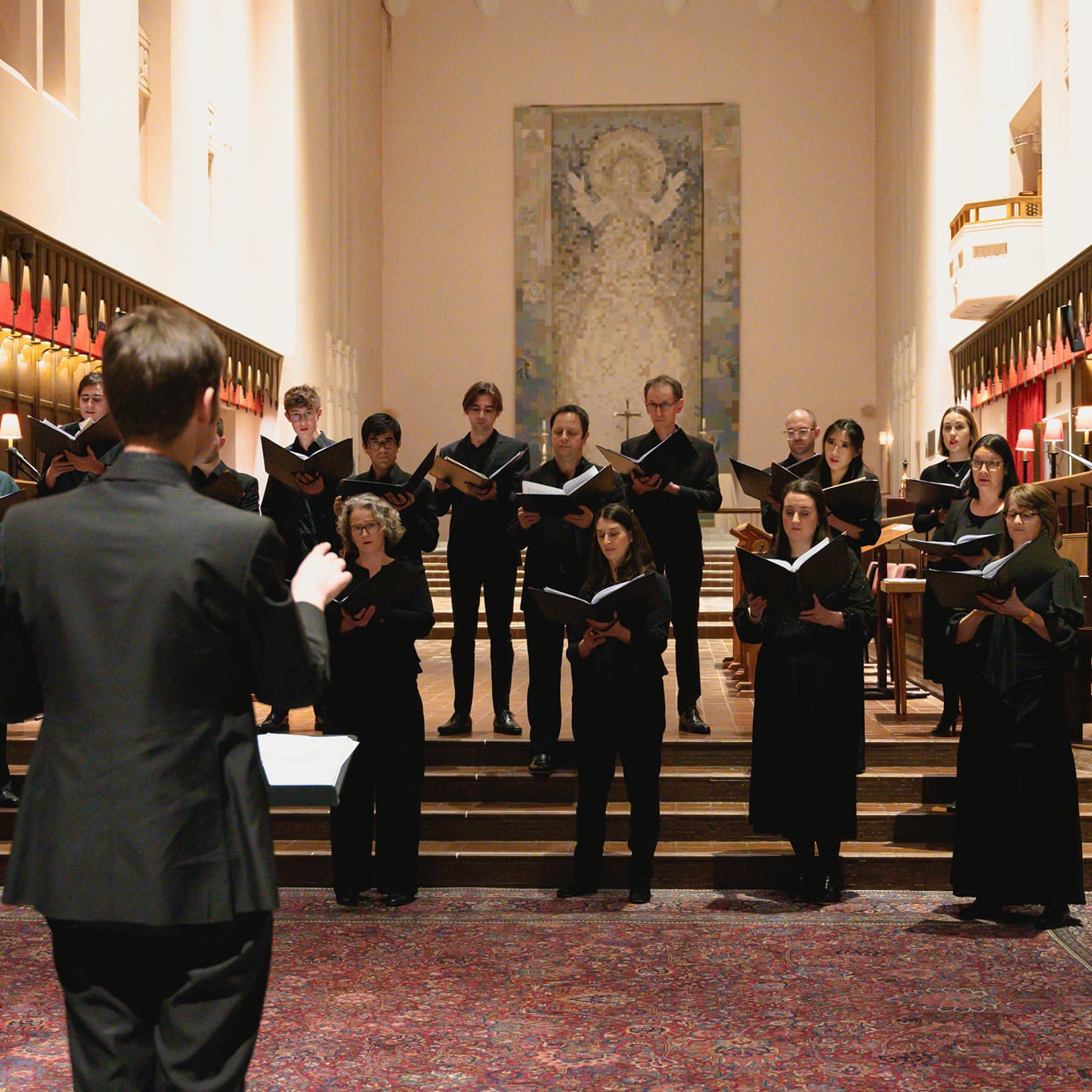
Tudor Consort, choir
The deep relationships we form with our composers-in-residence mark Orchestra Wellington as unique in the country. Our connection with John Psathas, now the orchestra’s Patron, is especially strong. In 2025, we will proudly present the New Zealand premiere of his work Next Planet, which debuted with the Düsseldorf Tonhalle last season. Appointing a world-renowned New Zealand composer as our patron sends a powerful message about our values and emphasises Orchestra Wellington’s commitment to the future of music of Aotearoa.
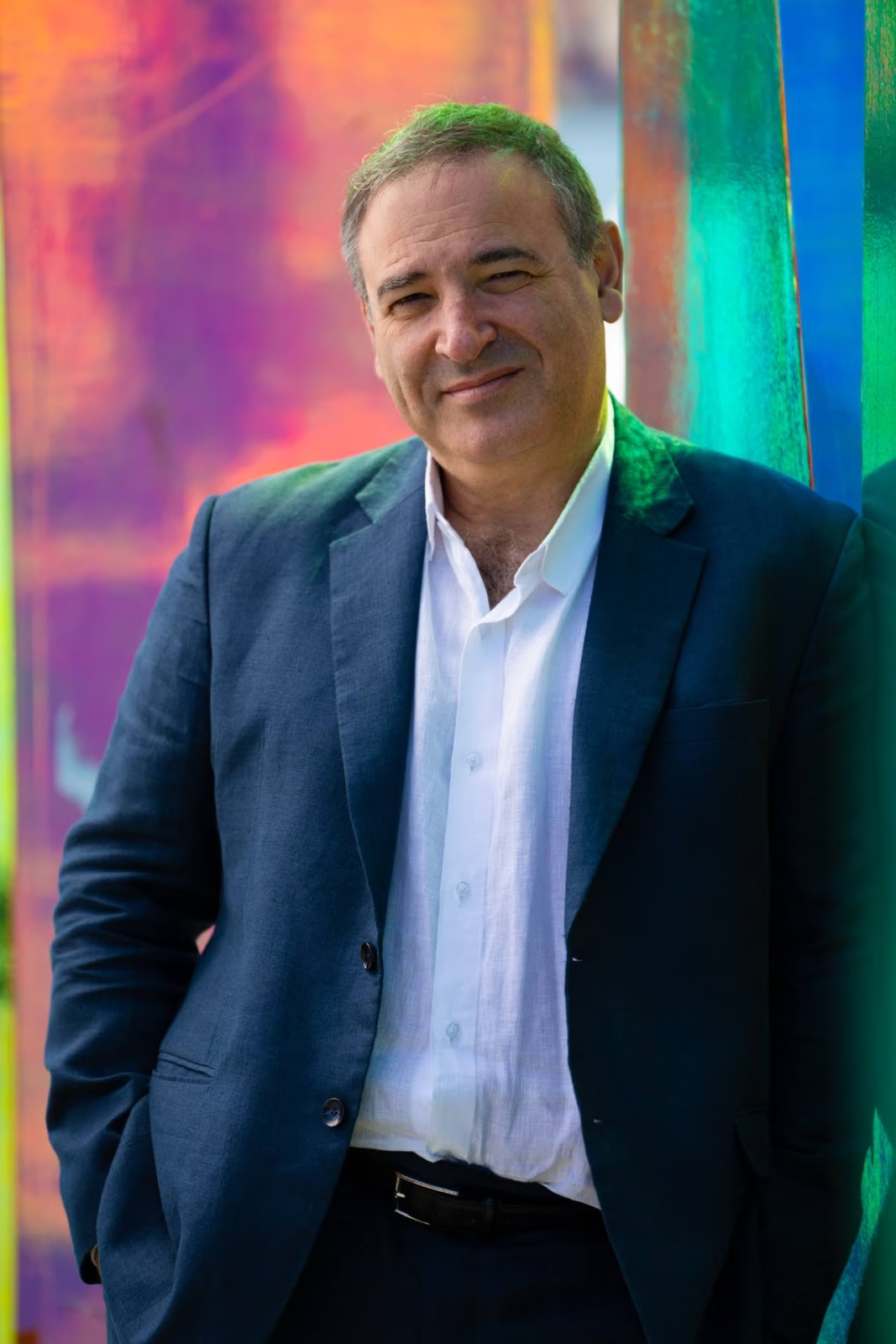
John Psathas, Orchestra Wellington 2025 Patron and emeritus Composer-in-Residence
We also collaborate with and welcome distinguished international artists from Central Otago’s AWE Festival. Artistic director Benjamin Baker will perform the beautiful Glazunov violin concerto, a stunning example of late Romanticism. Glazunov, a revered mentor of Shostakovich, provided a foundation for the young composer, even though their musical epochs in Russia were quite different. The extraordinary viola virtuoso and 2025 AWE Festival Artist Yura Lee will join Ben in performing Mozart’s Sinfonia Concertante. Both artists will also present individual concerts and masterclasses for promising young musicians. These “Taste of AWE” performances will take place at the Futuna Chapel in Karori — one of the greatest architectural masterpieces of the 20th century. These concerts will be unmissable!
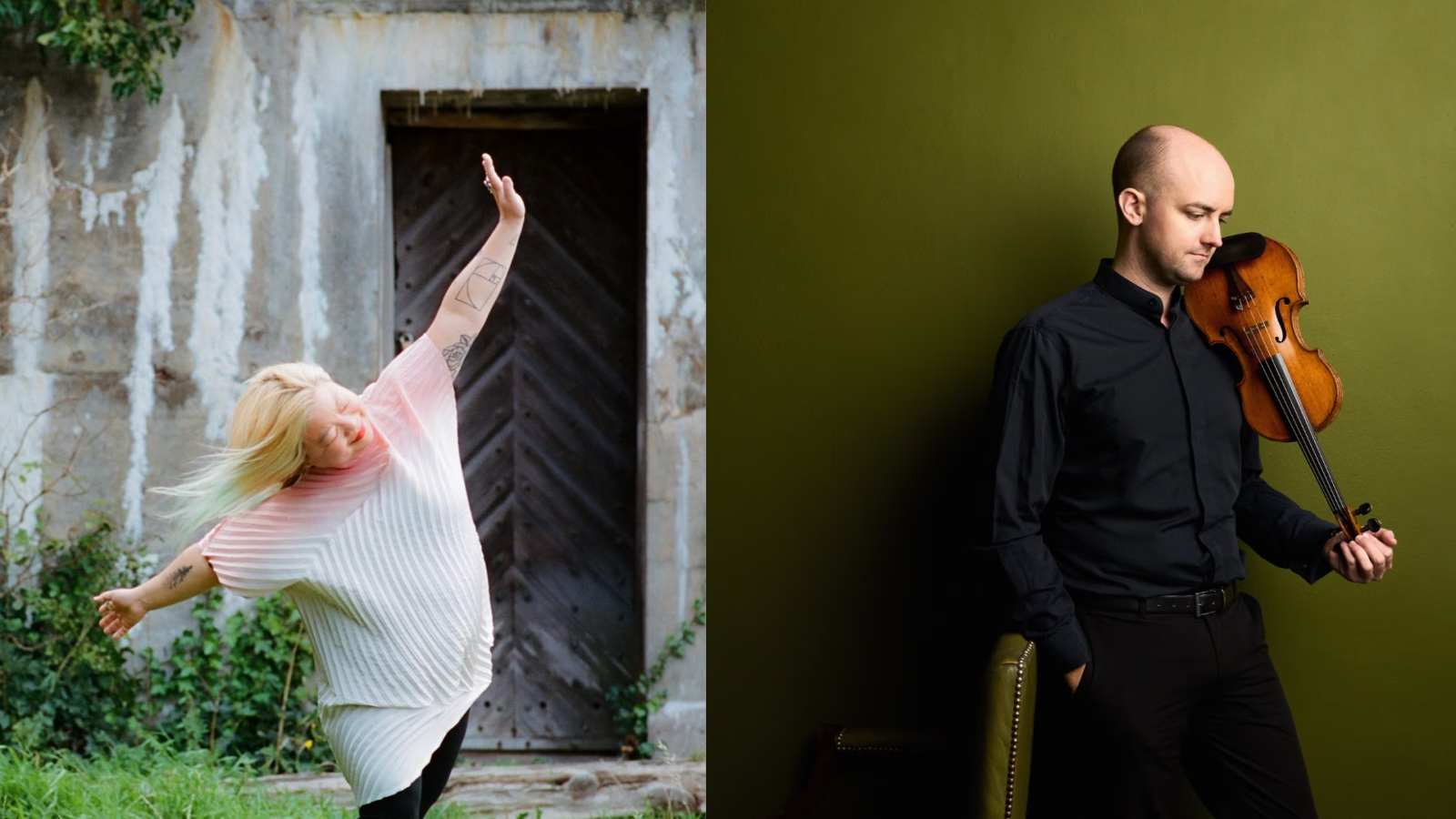
Yura Lee, 2025 AWE Festival Artist, viola (left) and Benjamin Baker, AWE Artistic Director, violinist (right)
Education and community outreach are integral to everything Orchestra Wellington does. Our programming approach — a story well told — builds appreciation, enjoyment, and community through the joy of live music. Our school programmes, family concerts, and popular endeavours, along with the tireless work of our musicians, extend our reach to over 80,000 people in the Wellington region annually.
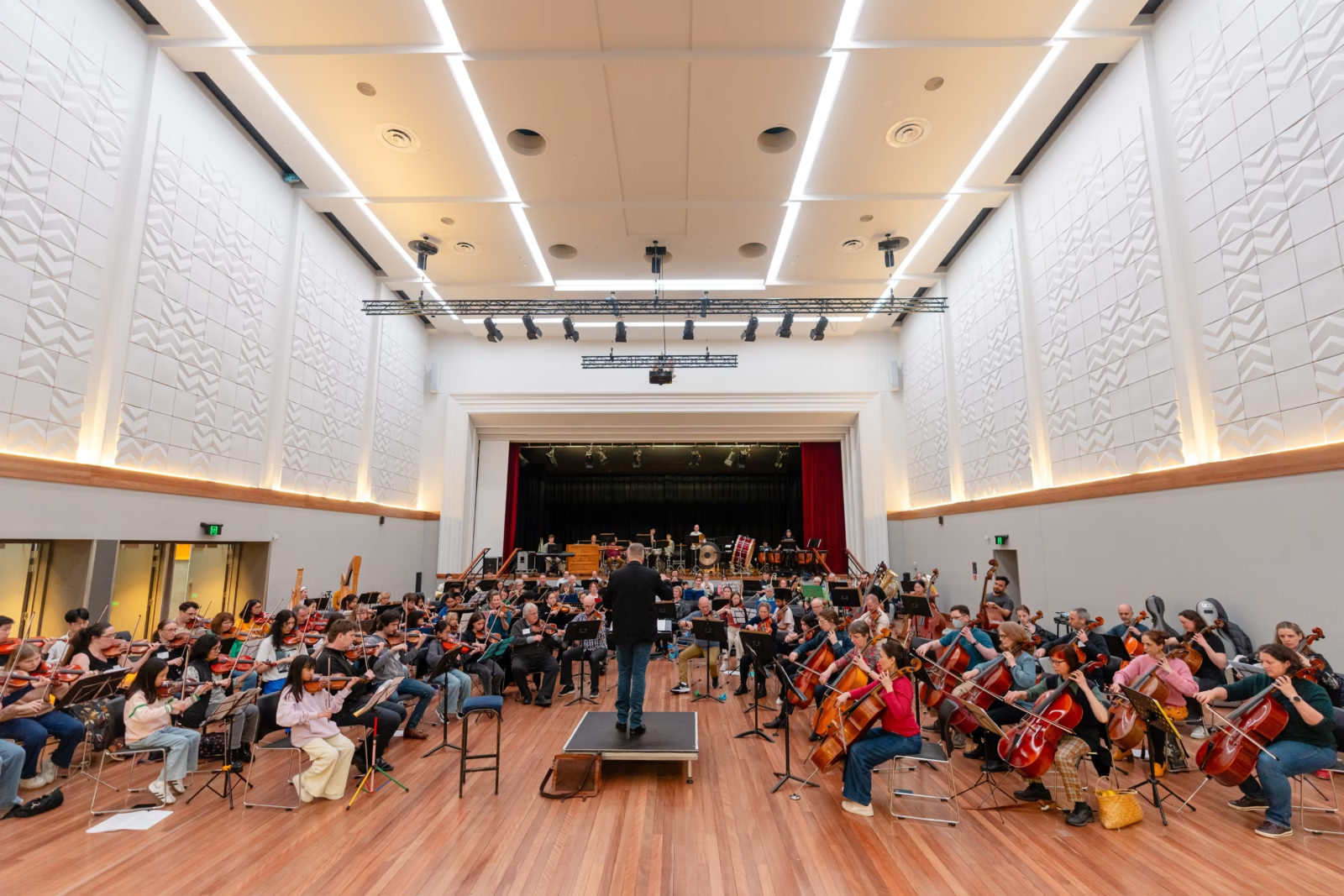
Orchestra Wellington Music Director Marc Taddei conducts the 2024 Big Bash festival orchestra.
None of this would be possible without your support. Your belief in the importance of the arts motivates us to create programmes of quality, meaning, and depth. The Dictator’s Shadow tells a story that resonates with current world events, but alongside our distinguished colleagues, it becomes more than a reflection on the artist’s plight — it becomes an artistic celebration of the life of one of modernism’s most extraordinary and enigmatic figures.
It is an honour to serve you. Your support compels us to present stories that speak to profound truths while inspiring, delighting, and entertaining. Please consider joining us for another wonderful season —let’s shine some light on that shadow!
Tickets to all concerts on sale from 1 March 2025 via Ticketmaster.
– Marc Taddei
Music Director, Orchestra Wellington
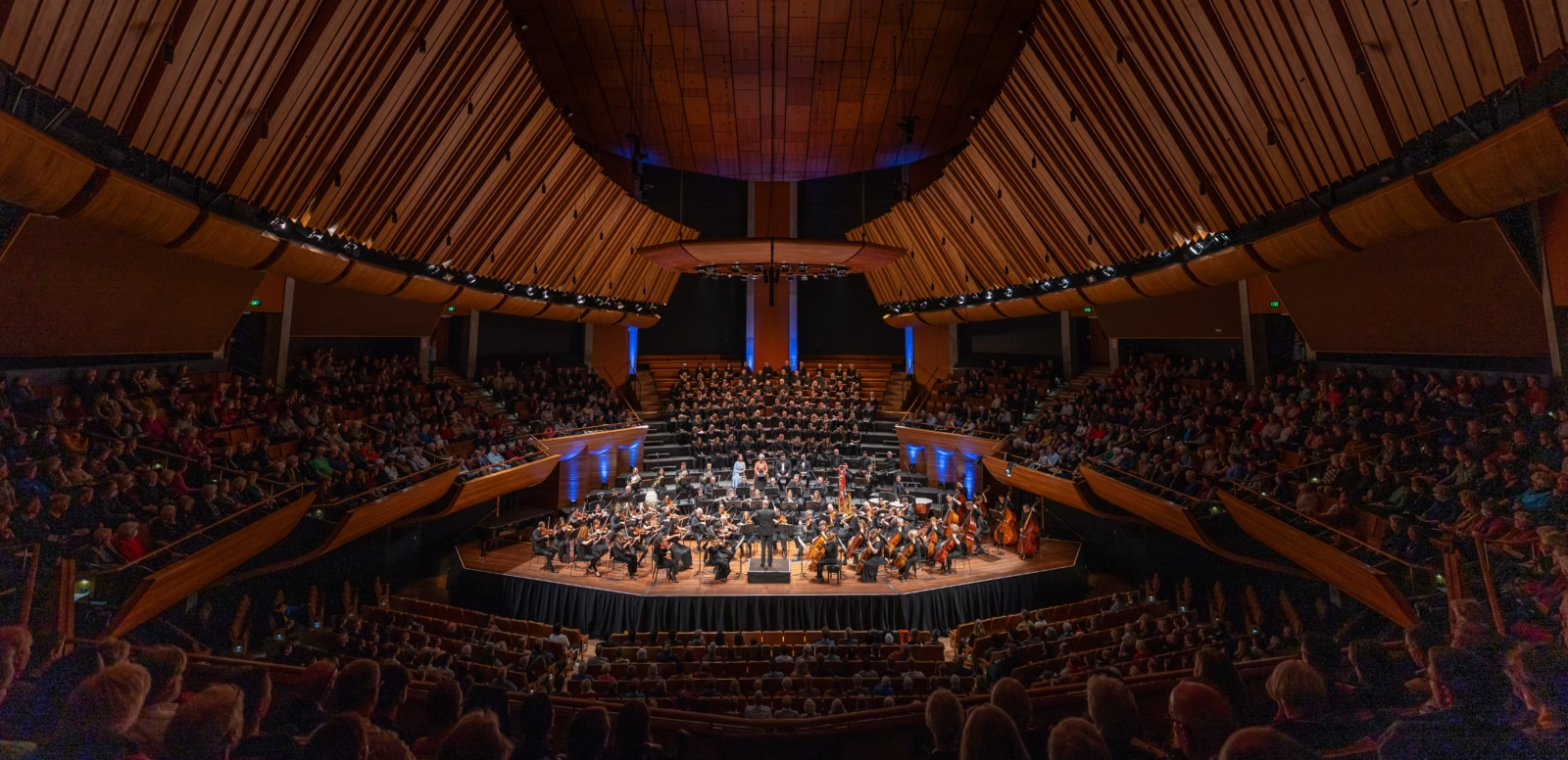
Orchestra Wellington performs to a full house at the Michael Fowler Centre, 2024.
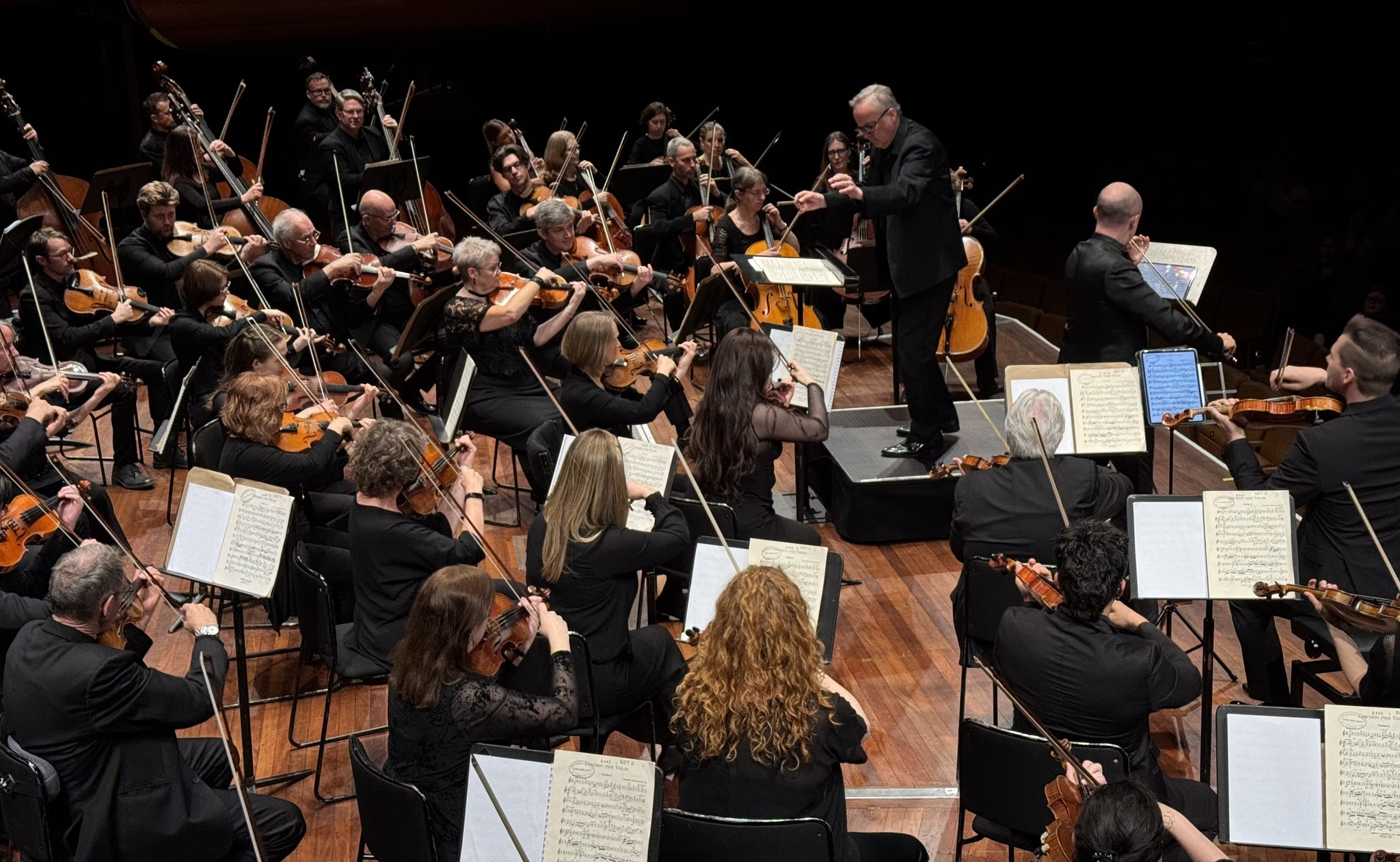
Work with us!
We are an equal opportunity employer.
Everyone is welcome at Orchestra Wellington!
We feel strongly that the diverse backgrounds, lived experiences, and individual contributions of our employees are an integral part of what makes the arts relevant, accessible, meaningful, impactful, and sustainable.
Reach out to find out about our current vacancies.